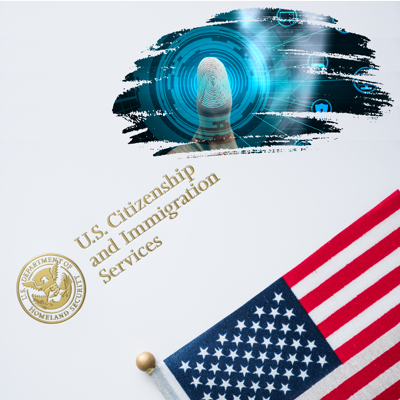

When applying for an immigration benefit with the United States Citizenship and Immigration Services (USCIS), one of the requirements is often the collection of biometric data. This data includes fingerprints, photographs, and signatures, which help USCIS identify and verify the identity of the applicant or petitioner. In this article, we will explore the different aspects of biometric collection by USCIS, including appointments, mobile biometrics collection, fingerprint waivers, and the types of biometrics collected.
|
Biometric appointments are essential to the application process for various immigration benefits requested from the United States Citizenship and Immigration Services (USCIS). After submitting an application, petition, or other requests, USCIS schedules a biometrics appointment at a local Application Support Center (ASC). When an individual files an application or petition with USCIS, they will receive a biometric appointment notice. This notice will provide the date, time, and location of the appointment, as well as specify the type of identification the individual should bring. However, if the individual requires an exemption from collecting certain biometric data, they must request it during their ASC appointment. It is necessary to attend the biometrics appointment, as USCIS considers a failure to appear as an abandonment of the application, petition, or immigration request. However, USCIS may excuse the failure to appear if they receive a change of address or rescheduling request that they conclude warrants excusing the failure to appear. |
| Individuals who cannot provide fingerprints due to medical conditions, such as disabilities, congenital disabilities, physical deformities, skin conditions, and psychiatric conditions, may qualify for a fingerprint waiver. However, only authorized USCIS employees can grant fingerprint waivers. To be eligible for a waiver, the individual must have appeared in person for the biometrics collection, and the officer or authorized technician must have attempted to fingerprint the person or determined that it was impossible. The officer must then determine that the person is unable to be fingerprinted or provide a single legible fingerprint. Fingerprint waivers cannot be granted solely based on the following situations: The person has fewer than ten fingers. The person’s fingerprints are unclassifiable. The person’s condition preventing fingerprint collection is temporary. If a fingerprint waiver is granted, it is only valid for the particular application, petition, or benefit request listed on the ASC notice for which biometrics are collected. The individual must request a fingerprint waiver for each subsequent filing with biometrics collection requirements. |
| USCIS collects several types of biometric data, including fingerprints, photographs, and signatures. The agency embeds photos in secure documents, such as Permanent Resident Cards (Form I-551) and Employment authorization cards. |
| The biometric collection is an essential part of the application and petition process with USCIS. Applicants and petitioners must attend scheduled ASC appointments or request mobile biometric services if they cannot attend in person. In some cases, Immigration authorities may grant fingerprint waivers to individuals with medical conditions preventing them from providing fingerprints. USCIS officers oversee the biometric collection and enforce USCIS regulations and procedures. By understanding the different aspects of biometric collection, individuals can ensure they comply with USCIS requirements and avoid delays in processing their applications or petitions. |